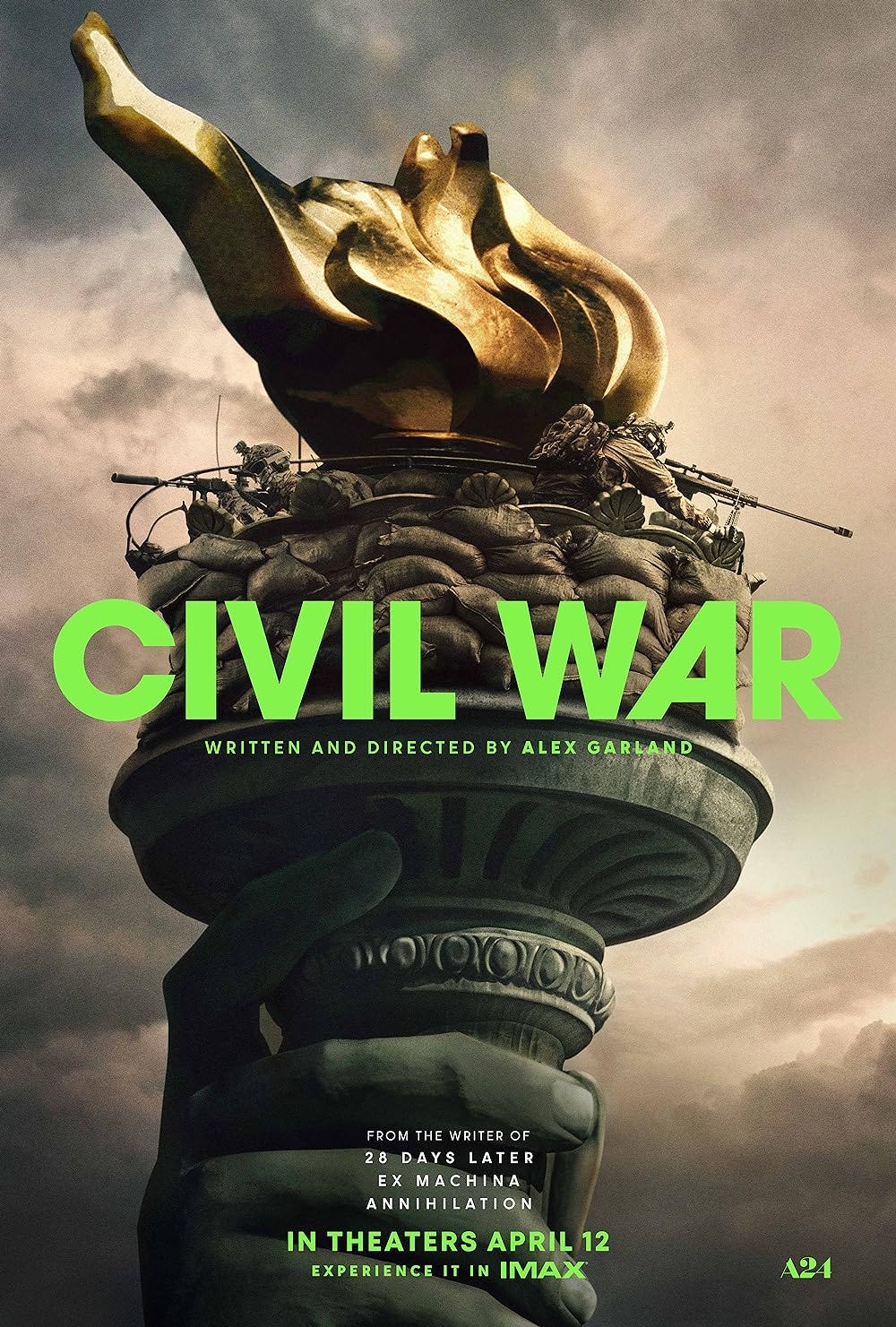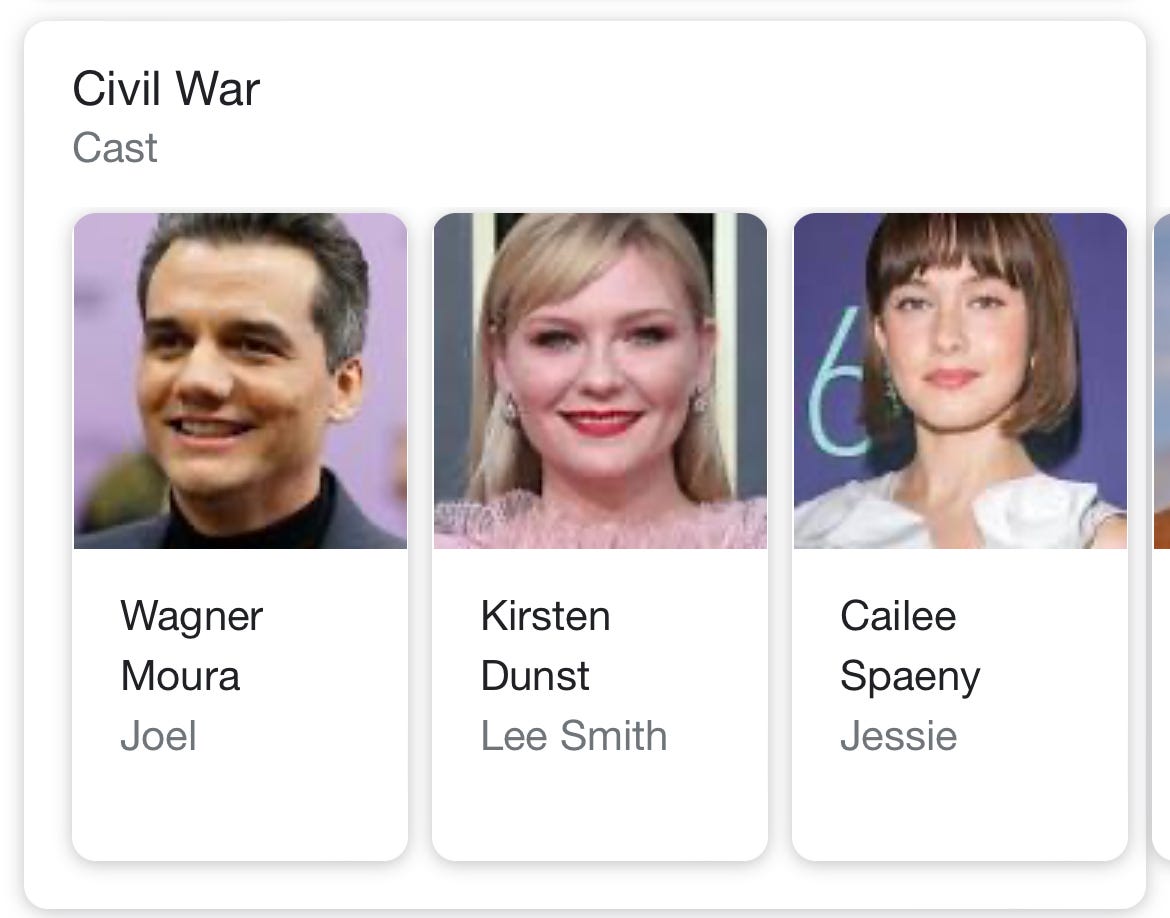Civil War Is a Movie About How Journalists Are Monsters
A story for our time
Spoilers abound for Civil War - if you still intend seeing it, maybe don’t read this.
Alex Garland’s latest movie “Civil War” came out during the last few weeks and has proven a moderate hit. Most of the conversation online about the film has revolved around criticising it for being insufficiently condemnatory of MAGA and Trump. One headline summarised this mood when it said that the movie “polarized audiences with its depiction of violence—and its evasion of politics”.
There’s no need to be upset. If audiences feel Civil War evades politics, that’s only because they don’t recognise that the movie is really about the more niche subject of the job of journalists, and function of journalism, in 2024.
Over the last few years movies and TV shows have sought to catch the zeitgeist by seeing who can make the most heavy-handed references to the awfulness of Trump. We don’t need another movie like that, though anyone who thinks about it for 30 seconds will realise that Civil War wears its anti-MAGA credentials on its sleeve. Journalism is a more worthwhile subject: one of the biggest drivers of the pre-Civil War frisson the movie seeks to capture is the collapse in trust of the media, the loss of power of traditional cultural institutions and the feeling that modern reporters themselves are motivated by a something other than a desire to root out the truth. Civil War doesn’t nail all of those problems but it gets close enough.
The film is set in a dystopian near future, and follows a team of journalists traveling across the United States during a civil war which has engulfed America. The journalists are Lee, a famous war photographer played by Kristen Dunst; aspiring photojournalist Jessie (Cailee Spaeny), and writer Joel (Wagner Moura).
Kristen Dunst’s Lee seems to set the tone at the start of the movie. One of her colleagues doubts the morality of the war; Lee says “it’s not our job to ask those questions. It’s our job to take pictures so other people can ask those questions.” It’s easy to take that at face value as the thesis of the movie, but every action of the journalists themselves belies this idea. Lee herself is not so much stoic and objective as she is stone-faced, joyless and disconnected. She is tortured by memories of the terrible things she’s forced herself to witness in order to get her shots but without the attendant sense it was worth it. There’s no indication from the movie that her photos will end up anywhere that matters, or that if they did they’d reach an audience that could change its mind, or the course of the war.
Her ability to articulate a purpose or at least explain away the dubious morality of her job puts her in a position of superiority to her two most active colleagues in the movie. Both Joel and Jessie are driven by the thrill of being close to violence and the desire to be on stage as historic events unfold.



